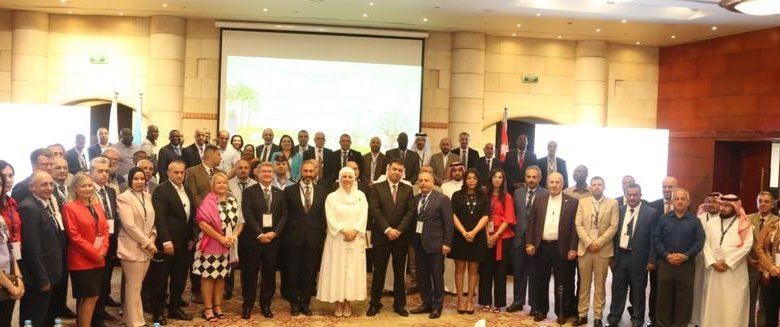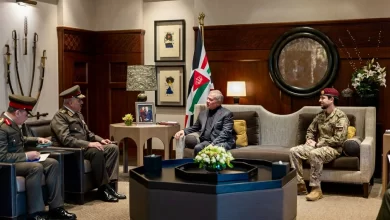
By: JD News Desk
Jordan Daily – The Food and Agriculture Organization of the United Nations (FAO) Regional office for the Near East and North Africa (NENA) hosted the twenty-sixth session of the Near East Forestry and Range Commission (NEFRC) in Amman, Jordan from the 10th to the 13th of September.
This session was conducted alongside the third session of the Committee on Forestry Working Group on Dryland Forests and Agrosilvopastoral Systems, and the fifth Near East Forestry Week.
The NEFRC session celebrated its 70th anniversary since its establishment in 1953. Member countries recognized the need for a regional forum to deliberate, share knowledge, and advise on forestry and rangeland issues in the region.
The FAO Committee on Forestry (COFO) Working Group on Dryland Forests and Agrosilvopastoral Systems, initiated in 2019 and convened biennially, aims to foster a comprehensive understanding of dryland forests and agrosilvopastoral systems. It seeks to promote the adoption of best practices for their protection, sustainable management, and restoration, while contributing to environmental and socio-economic resilience and sustainable livelihoods.
The 26th Session of the NEFRC tackled a range of issues pertinent to forest and rangeland resilience in the face of climate change, phytosanitary measures in forestry, socio-economic empowerment of forest-dependent communities, and the restoration of silvopastoral and agrosilvopastoral systems. Additionally, it aimed to facilitate South-South knowledge sharing to enhance the restoration of dryland forests and agrosilvopastoral systems.
Serge Nakouzi, Deputy Regional Representative of the FAO Regional Office for the Near East and North Africa, highlighted the significance of forests and rangelands in ensuring livelihood resilience, ecosystem health, and food security, especially in the context of climate change.
The opening session of the Commission drew over one hundred participants, including representatives from 20 member countries, with 17 more representing global and regional intergovernmental organizations. Notably, Princess Basma bint Ali, FAO Goodwill Ambassador for the Near East and North Africa Region, emphasized the region’s environmental challenges, from desertification to water shortages and environmental degradation, calling for international cooperation and urgent action.
Eng. Khaled Hnaifat, Minister of Agriculture, speaking on behalf of the Prime Minister, stressed the importance of restoring agrosilvopastoral systems and forest and pastoral value chains for the sustainable management of natural resources , expecting that the meeting’s outcomes would include region-specific recommendations and innovative policies to mitigate the effects of climate change and promote the development of forests and pastures.
In tandem with the NEFRC Session, the fifth edition of the Near East Forestry Week aimed to encourage participation from Private Sector Companies, Non-Governmental Organizations, Community-Based Organizations and Associations, and the media.
This event focused on discussing emerging technical topics relevant to forestry and rangelands in the Near East Region, sharing innovative regional experiences related to climate change adaptation, urban forestry, ecosystems restoration, and forest health.
The NEFRC session, the COFO Working Group, and the Near East Forestry Week collectively underscored the critical role that sustainable forestry and rangeland management play in addressing pressing environmental challenges and ensuring the prosperity of the Near East region.

